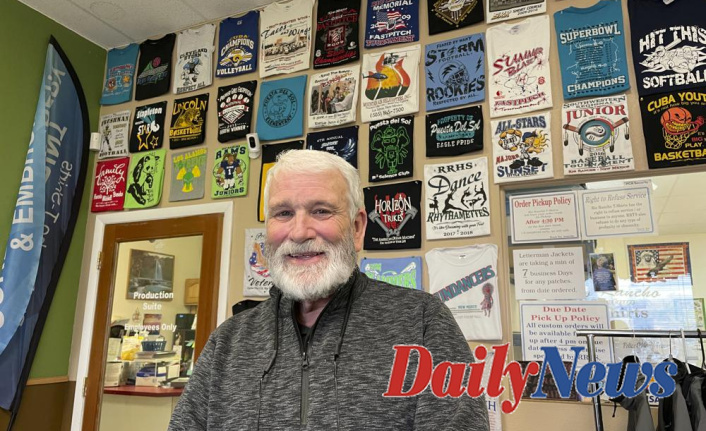California, Kansas, and Minnesota are just a few of the states that have suggested giving rebate checks to their taxpayers. Many Republican legislators are critical of the idea and suggest permanent tax cuts instead.
The proposal of the Maine Governor. Janet Mills is a generous governor in a state where fuel and food prices have soared in recent months. As part of the state's budget bill, the Democratic governor would like to send $850 to all residents.
Mills stated that the rebate would help Maineans deal with increased costs and put money back in their pockets.
Wendell Cressey is a Harpswell clamdigger who said that the check would provide only temporary relief due to the rising cost of fuel.
It might be helpful, but it would need to cost a lot more since we have to pay for gas. Cressey stated that V-8 trucks are the most common type of vehicle. "I don't believe it will help as much as they think."
The direct rebates are not the only thing that lawmakers and governors in the country are looking at sales tax cuts, property taxes relief, and reducing state gas taxes.
These proposals are coming at a time many states have too much money due to billions of dollars in federal tax revenue and pandemic aid. This is also occurring as a result of the rising prices for fuel, and other necessities.
It is also not a coincidence that relief is being floated in an election year, according to Mark Brewer, a University of Maine political science professor. The race for Maine's governor is one of many closely monitored contests at state level this year.
Brewer stated that there is a real policy reason for doing this. "But it's also obvious that this year is an election year and there are few things more popular than giving voters free money from government."
As consumer inflation rose nearly 8% in the past year, states are now moving to send money. This was the most dramatic spike since 1982.
According to the Penn Wharton Budget Model (a project of Wharton Business School), inflation inflated the average family's food costs by almost $590 last year. The average family spent $3,500 more to purchase the same goods and services last year than they did in previous years.
Some New Mexicans have raised concerns about whether Democratic Gov. Michelle Lujan Grisham's plan to get a $250 rebate is not enough considering how much consumer prices are rising.
Wayne Holly and Penny Holly were among small-business owners who had to close their doors in the COVID-19 pandemic. This was due to the governor's health orders.
The T-shirt and screen printing business survived the storm, but now the company is feeling the pinch as materials prices rise and customers want to protect their bank accounts.
"Do we have customers who are upset and irate that things have changed?" Wayne Holly stated, "Yes, we sure do." "Do we have customers who claim they never had to pay $4.50 for gas? I answer that I do.
New Mexico's rebate plan and questions about its effectiveness reflect a growing trend in states that seek to provide relief for residents, amid criticism that they could have done more.
Due to federal COVID-19 relief funding, many states have record cash flows. Presidents Donald Trump and Joe Biden passed measures that collectively gave more than $500 billion to local and state governments. Some of this money is still in state coffers, waiting to be spent.
These federal pandemic relief legislations also provided stimulus checks for U.S. taxpayers. This helped to boost consumer spending on goods that are subject to local and state sales taxes. According to a report by Urban Institute, the total state tax revenues increased by more than 19% between April 2021 and January 2022 when adjusted for inflation.
Erica MacKellar from the National Conference of State Legislatures, a fiscal policy analyst, stated that "Overall, states' fiscal condition is strong" and was much better than what we expected at the beginning of the pandemic.
This has given state officials more confidence to offer tax rebates and direct payments to residents. However, some financial experts warn against being too cautious as inflation could also drive up wages and state expenses.
Lucy Dadayan (senior research associate at Urban Institute) wrote that the state legislatures shouldn't rush to enact permanent tax cuts based upon what may be temporary growth of real revenues in a recent analysis.
Each state has its own relief plan. Minnesota Gov. Tim Walz (Democrat) released a plan to spend the state's surplus budget that included a proposal to send $1,000 each couple income tax rebate checks. California Democratic legislators have proposed separate rebates for each taxpayer of $200 to $400. Gov. Gavin Newsom stated that he would like to distribute fuel debit cards worth up to $800 in order to ease the burden on those who have to pay the highest gasoline prices in the country.
Other Democratic governors have suggested other approaches. Pennsylvania Governor. Tom Wolf seeks a one-time property subsidy for low-income renters and homeowners. In Illinois, Gov. J.B. Pritzker proposed stopping a 2.2-cent rise in motor fuel tax, suspending a 1% supermarket sales tax for a full year, and offering a property tax rebate up to $300
New Jersey was the first to take advantage of this opportunity. Gov. Gov.
This year, the state's positive financial picture has been maintained thanks to healthy tax receipts as well as federal funds. Also, higher taxes for people earning $1 million have contributed to its rosy financial position. Murphy's budget for fiscal year 2023 doesn't include any cash rebates.
In other states, relief proposals have not gone as smoothly. Vermont Governor. Republican Phil Scott proposed that half of the $90 million surplus in Vermont's Education Fund be returned to property taxpayers. He offered a check between $250 and $275. However, the Democrat-controlled Legislature showed little interest.
Scott stated that "typically, when you overpay to something, you get some money back," when he proposed earlier this month.












